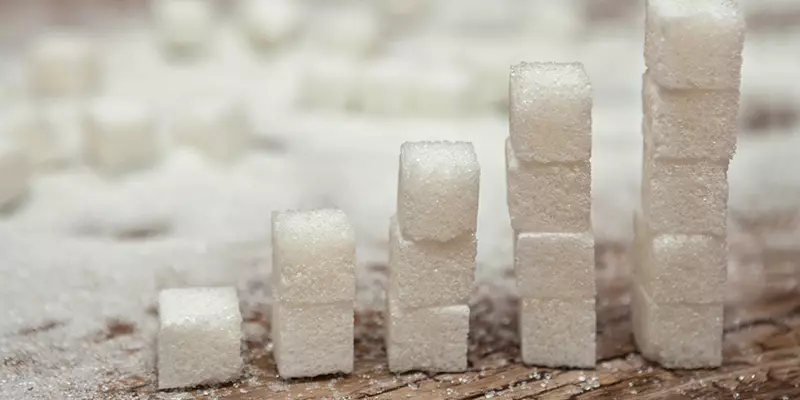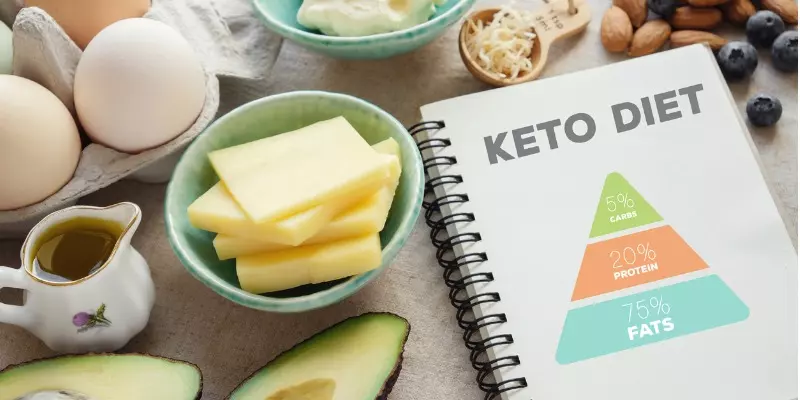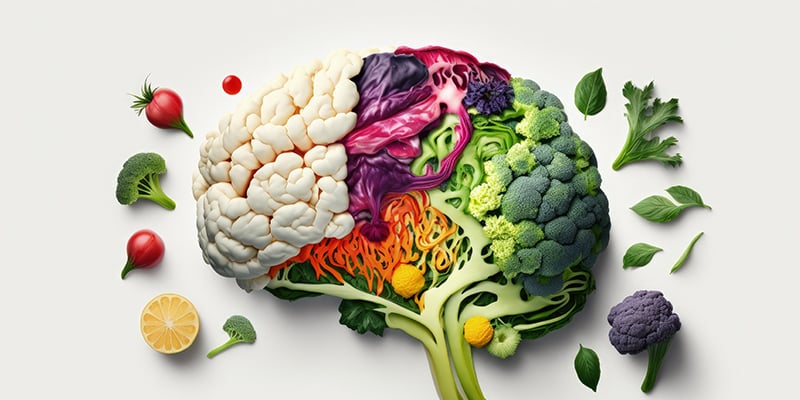
It’s 3 o’clock in the afternoon and all of a sudden, you get hit hard with a craving. You want—no, you need—a sugar fix (chocolate, cookies, cake, you name it, you’ve got to have it! You don’t want to give in to the craving, but the memories of the sweet taste try to hijack your brain, and dopamine, the pleasure and motivation brain chemical, pushes on an area of your brain that drives you to the kitchen cabinet where your sugar stash is stored.
The cravings win again.
If you have a sweet tooth and haven’t been able to conquer your cravings, you’re not alone. One patient at Amen Clinics, the global leader in brain health, said she would rather get Alzheimer’s disease than give up sugar! Why are sugar cravings so powerful? The neuropsychiatrists at Amen Clinics say the answer lies in the brain.
Why are sugar cravings so powerful? The neuropsychiatrists at Amen Clinics say the answer lies in the brain. Click To TweetTHE NEURAL CRAVINGS CIRCUIT
A wealth of research, including a 2018 review in the British Journal of Sports Medicine, shows that sugar is addictive. Researchers now say that sugar 8 times more addictive than cocaine and inside the brain, it works in the same areas that react to morphine.
Sugar cravings involve multiple brain regions and neurotransmitters, including:
- Dopamine: Consuming sugar triggers the release of the neurotransmitter dopamine, which is involved in motivation and salience.
- Nucleus accumbens: The pleasure and motivation center of the brain, the nucleus accumbens is located within the basal ganglia. The nucleus accumbens provides the passion and motivation that is one of the main drivers of behavior. Think of the nucleus accumbens as a pleasure button. With every bite of the sweet stuff, the button is pressed. And the same way it can happen with cocaine or other addictive substances, if the pleasure button is overused, it gets worn out and you need more to make you get the same sweet satisfaction.
- Deep limbic system: The emotional centers of the brain also play a role in sugar cravings. The memories you have that are associated with, for example, ice cream—birthday celebrations and other happy moments—cause you to seek to repeat this experience. It’s as if the ice cream will help you recapture that wonderful moment in your life.
- Prefrontal cortex (PFC): The PFC, which is involved in self-control, impulse control, and judgment, is the brain’s brake. It reminds you that eating ice cream doesn’t fit in your goals and that you’ll feel bad after you eat it.
When cravings hit, there’s a sort of tug of war that happens inside your brain. The pleasure centers, emotional centers, and the neurotransmitter dopamine compel you to head to the freezer for the ice cream. Meanwhile, the PFC tries to put on the brakes.
Which part of your brain do you listen to? It depends.
In a healthy brain, a strong PFC provides good judgment and emotional control so you can say no to the ice cream. When the PFC is underactive, however, the pleasure and emotional centers can hijack the brain and take control. When this happens, you cave to the sugar cravings again… and again… and again.
Even if your brain’s pleasure centers and emotional centers have wrestled control from your prefrontal cortex, you can learn to strengthen your PFC and train your brain so you can overcome sugar cravings. Here’s how.
Even if your brain’s pleasure centers and emotional centers have wrestled control from your prefrontal cortex, you can learn to strengthen your PFC and train your brain so you can overcome sugar cravings. Click To Tweet11 STEPS TO CONQUER YOUR SUGAR CRAVINGS
1. Keep your blood sugar balanced.
Low blood sugar levels are associated with overall lower brain activity, including lower activity in the PFC, the brain’s brake. Low brain activity here means more cravings and more bad decisions. Research in the Journal of Personality and Social Psychology shows that self-control failures are more likely to occur when blood sugar levels are low. What causes blood sugar levels to drop? Drinking alcohol, sugary snacks, sweetened beverages, and other high-glycemic foods (think rice, pasta, and cereal). Stabilizing blood sugar levels throughout the day improves self-control. Here are simple tips to help you do it.
- Eat protein and healthy fats at every meal.
- Have smaller meals throughout the day. This helps eliminate the blood sugar rollercoaster ride that can impact your emotions and increase cravings.
- Replace simple sugars and refined carbs with healthier options. For example, swapping candy for a few squares of sugar-free dark chocolate can help you kick the habit.
- Try nutritional supplements, such as chromium and alpha-lipoic acid. They have very good scientific evidence that they help balance blood sugar levels.
2. Eliminate artificial sweeteners.
If you really want to decrease your cravings, you need to get rid of artificial sweeteners. You may think of these sweeteners as “free” because they have no calories, but they are up to 600 times sweeter than sugar, which may activate the appetite centers of the brain making you crave even more sugar. If you can learn to go without any sweeteners, your brain will stop craving the sweetness. If you must, replace the artificial stuff with natural sweeteners like stevia or erythritol.
3. Manage your stress.
Anything stressful can trigger certain hormones that activate your cravings, making you believe that you need the ice cream, cake, or licorice. Meditation and hypnosis are powerful stress-management practices that can boost blood flow to the PFC to help rebalance your brain circuitry.
4. Outsmart sneaky cravings triggers.
Nearly everywhere you go, someone is trying to entice you to eat something sweet. Think of the candy displays near the checkout counter at the grocery store, which is intentionally designed to tempt you to make an impulse buy. To control your cravings, you have to control your triggers. Know the people, places, and things that fuel your cravings and plan ahead for your vulnerable times. For example, choose the grocery store aisle that has the display of razors and batteries instead of the candy.
5. Find out about hidden food allergies.
Hidden food allergies and food sensitivities can trigger cravings and make you fall back into old habits. For example, did you know that gluten and milk allergies can decrease blood flow to the brain and decrease your judgment? In addition, food allergies can cause concentration problems and anxiety, which can increase cravings. To find out if you have any food sensitivities, try an elimination diet. Stop eating corn, soy, dairy, gluten, artificial sweeteners, and food colorings for 3 weeks then introduce them back into your diet one at a time and see if you have any reactions.
6. Practice willpower.
Willpower is like a muscle. The more you use it, the stronger it gets. Practice saying no to the things that do not serve you and over time, you will find it easier to do.
7. Get moving.
Physical exercise can cut cravings. A 2012 study in the journal Appetite showed that taking a brisk 15-minute walk decreased cravings for chocolate. Not only that, it also fended off the cravings for an additional 10 minutes following the walk. Because cravings typically only last about 10 minutes, a brief bout of exercise may be all it takes to distract you from the sweets you crave.
8. Make sleep a priority.
Multiple studies, including a 2013 study in Nature Communications, show that lack of sleep increases cravings. “It’s important to get at least 7 hours of sleep each night to help battle cravings. Creating a healthy bedtime routine that promotes relaxation can help,” says Shane Creado, MD, a psychiatrist and sleep medicine specialist at Amen Clinics Chicago and the host of the Overcoming Insomnia online course.
9. Try nutritional supplements to curb cravings.
N-acetylcysteine, alpha-lipoic acid, chromium, dl-phenylalanine, and l-glutamine are 5 natural supplements with scientific evidence showing that they can help take the edge off cravings.
10. Avoid hidden sugars.
Even if you’re no longer adding sugar to the foods you eat and have kicked your cookie habit, you may still be consuming sugars without realizing it. Many so-called health foods contain hidden sugars. For example, many salad dressings, milk alternatives, and pre-made smoothies are loaded with sweeteners. You need to become a pro at reading food labels to root out sneaky sugars.
11. Treat underlying mental health conditions.
Craving sugar, sweets, and refined carbs have been associated with anxiety, depression, ADD/ADHD, schizophrenia, and other psychiatric issues. A number of studies, including a 2019 review in the journal Antioxidants, have found a link between high-sugar consumption and depression. And according to 2016 research in the journal Appetite, a diet containing more high-glycemic foods was associated with a higher incidence of depression and fatigue. In addition, when you’re feeling anxious or stressed, you’re more likely to crave sugar. ADD/ADHD has been associated with dopamine deficiency, which can cause people with this condition to seek out activities and foods—such as sugar—that stimulate dopamine. Addressing these conditions can help you conquer sugar cravings for good.
Anxiety, depression, ADD/ADHD, and other mental health—issues can’t wait. During these uncertain times, your mental well-being is more important than ever and waiting until life gets back to “normal” is likely to make your symptoms worsen over time.
At Amen Clinics, we’re here for you. We offer in-clinic brain scanning and appointments, as well as mental telehealth, remote clinical evaluations, and video therapy for adults, children, and couples. Find out more by speaking to a specialist today at 888-288-9834. If all our specialists are busy helping others, you can also schedule a time to talk.





Do you have a supplement that has all of these : N-acetylcysteine, alpha-lipoic acid, chromium, dl-phenylalanine, and l-glutamine? The 5 natural supplements with scientific evidence showing that they can help take the edge off cravings. And do they increase dopamine? What supplement increases dopamine?
Thank you!
Comment by Sonja — September 12, 2020 @ 7:34 AM
excellent topic!
Comment by Doug Morris — January 10, 2024 @ 3:38 PM